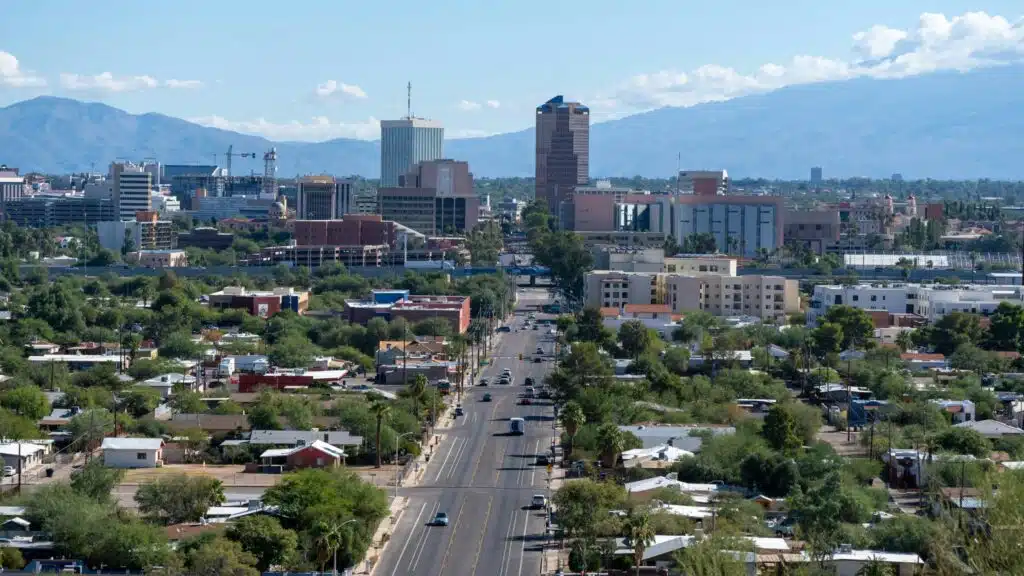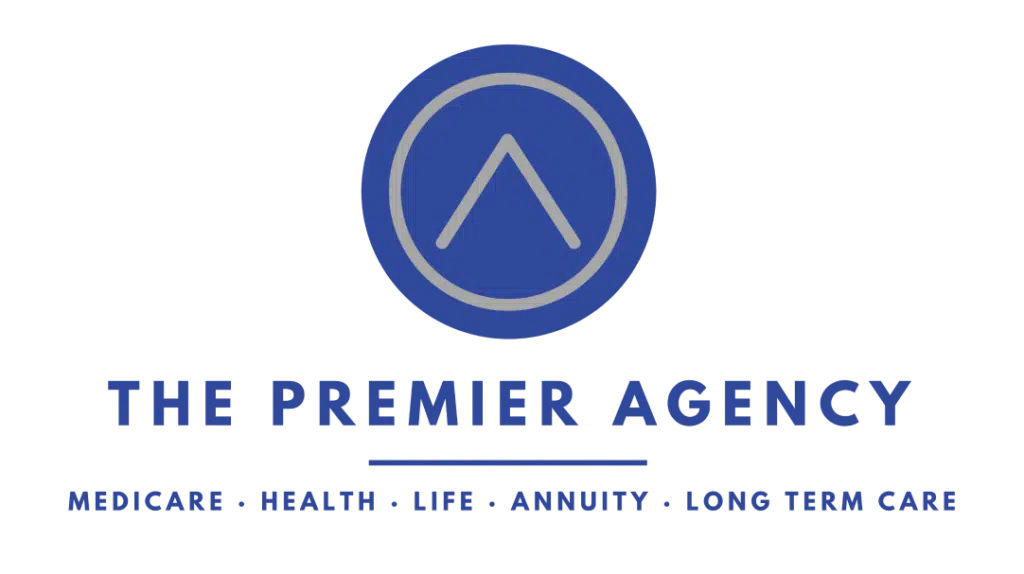Embarking on the journey to become a certified dual special needs broker in Arizona presents an opportunity to create meaningful change within the health and education sectors.
This role merges expertise in areas like healthcare policy and special education to support individuals who navigate complex conditions such as cerebral palsy and autism spectrum disorder.
Potential brokers who dedicate themselves to mastering a blend of disciplines can provide invaluable services, ensuring members have access to essential medical and educational resources.
In this article, we’ll explain the necessary steps to achieve certification and thrive in this impactful field.
Keep reading to uncover how you can enhance the lives of those with dual special needs in Arizona.
Key Takeaways
- Becoming a Dual Special Needs Broker in Arizona Requires Certification to Ensure Expertise in Coordinating Medicare and Medicaid Services
- Candidates Must Have a Relevant Undergraduate Degree and Experience With Special Needs Individuals to Apply for Certification
- Brokers Need to Pass Comprehensive Exams and Undergo Stringent Background Checks, Including Fingerprint Clearance, to Ensure Safety and Trust
- Continuing Education Is Essential for Maintaining Certification and Staying Current With Evolving Health Care and Education Policies
- Professional Growth for Certified Brokers Includes Networking, Specializing in Areas of Need, and Effectively Marketing Their Services in Arizona
Understanding the Role of a Dual Special Needs Broker

In the landscape of health care and special education, a Dual Special Needs Broker emerges as a critical player, especially within the state of Arizona.
This specialized role entails a combination of advocacy, management, and personalized attention to dual—eligible individuals—that is, those who qualify for both Medicare and Medicaid benefits—often grappling with conditions ranging from diabetes to cerebral palsy.
By mandating certification, Arizona ensures that brokers have the necessary expertise to navigate the intricacies of health insurance, state policies, and individual health profiles.
Being a broker means embracing many responsibilities, including crafting health risk assessments, coordinating with physicians and caregivers, and connecting patients with necessary services, which could span from therapy to dental care.
Thus, knowing the essence of the role is the cornerstone for those seeking to make a meaningful difference in this unique and rewarding facet of health care.
What Is a Dual Special Needs Broker?
A Dual Special Needs Broker in Arizona is a professional with specialized training to serve individuals with dual eligibility, meaning those who qualify for both Medicare and Medicaid services. This broker acts as a skilled intermediary between the dual eligible members and the array of programs and services they need, such as Medicare Advantage Plans or Medicaid and Medicare Savings Programs. Their role is essential in ensuring that clients receive a tailored strategy that encompasses the full spectrum of their health and educational needs.
- Evaluation of the client’s medical and educational requirements
- Coordination of Medicare and Medicaid benefits
- Advocacy for access to necessary health care
- Ensuring compliance with Arizona health policies
- Facilitation of specialized services such as therapy and home care
Why Arizona Requires Certification
Arizona mandates certification for Dual Special Needs Brokers to maintain a standard of quality and ensure that brokers possess a comprehensive understanding of both Medicare and Medicaid frameworks. Through this requirement, the state upholds a level of expertise critical for more effectively managing the complex needs of dual-eligible individuals.
- Guarantee high-quality service and expertise in navigating health systems
- Enhance the safety and well-being of dual-eligible individuals
- Promote professional accountability and adherence to state policies and regulations
Key Responsibilities of a Broker
A dual special needs broker in Arizona juggles a myriad of tasks aimed at ensuring that individuals with complex health and educational needs receive optimal care. Brokers coordinate across disciplines, managing the delicate balance between health care providers, educational services, and state Medicaid provisions to construct a comprehensive care plan for each member. Their diligence helps to link services like asthma treatment or dental care with special education programs, ensuring all aspects of a patient’s well-being are addressed seamlessly.
Initial Requirements for Certification in Arizona

Embarking on the journey to become a certified Dual Special Needs Broker in Arizona demands a robust foundation starting with the right educational background.
Prospective brokers must have a keen grasp of the healthcare and education sectors, typically demonstrated by holding an undergraduate degree or higher in a relevant field.
Additionally, tangible experience working with special needs individuals is invaluable.
This might include special education, health care management, or social services roles.
Before applying for certification, candidates must meet several other prerequisites, such as undergoing a thorough background check and securing specific professional training to sharpen their skills for this multifaceted role.
Educational Background Needed
For those targeting the role of a Dual Special Needs Broker in Arizona, securing a solid educational foundation is a significant step. The minimum expectation is usually an undergraduate degree in fields related to health care, education, public health, or social services which lays the groundwork for understanding the complex needs of dual-eligible members. With this educational groundwork, aspirants acquire the essential knowledge needed to navigate the regulatory landscapes of Medicare and Medicaid effectively.
Experience in the Field of Special Needs
To qualify as a Dual Special Needs Broker in Arizona, candidates must also bring a background rich in hands-on experience with individuals with special needs. This experience, often acquired in settings such as hospitals, schools, nursing homes, or through home care services, is crucial in developing the practical skills and empathy needed to address the nuanced challenges dual eligible members face in accessing their entitled health care and special education services.
Other Prerequisites Before Applying
Aside from a robust educational background and relevant experience, there are additional conditions that potential brokers must meet before submitting their application: A clean background check, including fingerprint clearance, is non-negotiable, ensuring the highest standards of safety and trust are upheld. Future brokers in Arizona also need to complete a state-approved training program which covers essential topics such as Medicaid and Medicare policies, ethics, and the coordination of care across various health risks and disabilities.
- Secure a fingerprint clearance as part of a comprehensive background check.
- Complete requisite state-approved training specific to dual eligibility brokerage.
- Demonstrate thorough understanding of Medicare, Medicaid, and state health policy.
Navigating the Certification Process

Aspirants moving forward in the quest to become certified Dual Special Needs Brokers in Arizona arrive at a crucial juncture: the certification process itself.
This pivotal stage requires careful attention to detail as candidates must deftly navigate the application intricacies.
The first step is to submit a comprehensive application to the Arizona Board, which opens the door to the forthcoming challenges.
The journey continues as candidates prepare for rigorous certification exams that test their knowledge and readiness for the role.
Additionally, a thorough background check is mandatory to affirm the candidate’s suitability and adherence to high safety standards.
Each of these steps is a critical milestone on the certification path and, ultimately, to serving the special needs community with professionalism and expertise.
Submitting Your Application to the Arizona Board
Candidates aiming to become certified Dual Special Needs Brokers in Arizona initiate the process by meticulously assembling their application package for the Arizona Board. This involves gathering relevant educational transcripts, proof of required experience, and results from completed training programs, all collated to demonstrate their readiness for the certification examination.
Preparing for the Certification Exams
Preparing for the certification exams demands focus and thorough study, as candidates must prove their command over essential topics like health policy, special needs, and dual eligibility coordination. Prospective brokers should dedicate time to reviewing laws specific to Arizona’s health care system, including Medicare and Medicaid nuances, to ensure they can provide informed guidance and services. Engaging with study materials and perhaps enrolling in preparatory courses can facilitate a deeper understanding of the responsibilities of the broker title.
Completing Required Background Checks
Ensuring the safety of dual-eligible members is paramount, which is why candidates must undergo comprehensive background checks. These checks assess an individual’s suitability for the responsibility laden role, considering their past actions and interactions within the context of legal and ethical boundaries.
| Step | Requirement | Description | Completion |
|---|---|---|---|
| 1 | Fingerprinting | Candidates must submit fingerprints for a state and federal criminal history check. | Local Police Department, Third-Party Vendor |
| 2 | Disclosure Statements | Applicants are required to disclose any past criminal activities or disciplinary actions. | Application Packet |
| 3 | Review Process | The state board reviews background checks to ensure compliance with safety standards. | Arizona Board Decision |
Exam Preparation Strategies for Aspiring Brokers

Forging ahead on the path to becoming a Dual Special Needs Broker in Arizona entails not just meeting prerequisites but mastering the certification exams.
This pivotal phase in a candidate’s journey demands a dedicated study plan equipped with comprehensive materials and resources.
Aspiring brokers must use study guides, practice tests, and targeted workshops to deepen their understanding of both professional and subject knowledge.
Moreover, tips from experienced brokers can provide invaluable insights that contribute to successful exam outcomes.
By delving into these strategies, candidates bolster their chances of passing their exams and setting a firm foundation for their future roles.
Study Materials and Resources
Securing the right resources is essential for those preparing to become certified Dual Special Needs Brokers in Arizona. Candidates should access the latest study guides and resources provided by the Arizona Department of Education, as these materials are designed to give insight into the specifics of the state’s health care policies and the unique needs of dual-eligible individuals. Additionally, utilizing practice exams and seeking out current public health and special needs literature can strengthen a candidate’s readiness for the certification exams.
Tips for Passing the Professional Knowledge Exam
For those determined to ace the Professional Knowledge Exam, a balanced approach that combines revisiting the core fundamentals of Medicaid and Medicare with a focus on Arizona’s specific health policy nuances can make all the difference. Engaging actively through scenario-based questions can sharpen analytical skills, while timing practice sessions help build the efficiency needed to navigate the exam successfully.
Workshops and Training for the Subject Knowledge Exam
Attending specialized workshops and engaging in targeted training programs is a strong approach for potential brokers gearing up for the Subject Knowledge Exam. These interactive sessions often provide nuanced information directly from the experts in the field and offer an opportunity to address questions specific to the roles and responsibilities of a Dual Special Needs Broker in Arizona.
- Identify workshops and training sessions focused on dual eligibility specifics in Arizona.
- Engage with subject matter experts to glean insights on complex cases and management strategies.
- Utilize these sessions to clarify doubts and solidify one’s understanding of the subject material.
Continuing Education and Recertification

Once an individual has navigated the rigorous path to become a certified Dual Special Needs Broker in Arizona, the journey doesn’t end there.
Keeping their certification current is vital for maintaining the profession’s integrity and ensuring they can continue to provide top-notch services to those with dual eligibility.
Brokers must accumulate a certain number of Continuing Education Credits to bolster their knowledge and stay abreast of the evolving landscape in health and special education policy.
Grasping the recertification process, which must be undertaken periodically, is equally important for compliance with Arizona’s standards for healthcare professionals in this specialized field.
Keeping Your Certification Current
Maintaining active status as a certified Dual Special Needs Broker in Arizona demands ongoing education. Brokers are tasked with keeping up-to-date with the latest in medical policy shifts, educational program modifications, and advances in technology that impact patient care. Staying informed ensures they continue to provide the highest standard of coordinated services required by their discipline.
- Accrue specified Continuing Education Credits to stay current with industry trends and regulations.
- Renew certification as mandated by the state to sustain professional standing and authority.
- Remain vigilant of changes in Arizona health care cost containment system policies affecting dual eligibility.
Required Continuing Education Credits
To remain in good standing, a certified Dual Special Needs Broker in Arizona must complete continuing education credits within a designated time frame. These credits, which reflect ongoing learning in areas pertinent to dual eligibility and special needs, affirm the broker’s commitment to excellence and ability to meet the community’s evolving needs.
Recertification Process in Arizona
The recertification process in Arizona requires Dual Special Needs Brokers to reaffirm their competence and adherence to the latest health care policies and practices. Brokers must file the necessary paperwork with the appropriate state body, showcasing how they’ve met continuing education requirements and any new training completed. This reassessment confirms their ability to continue offering specialized guidance and support to Arizona’s dual-eligible population.
Building Your Career as a Special Needs Broker

Once the arduous certification journey is over, newly minted Dual Special Needs Brokers in Arizona will be at the outset of a promising career path.
The focus then shifts to nurturing professional growth and expanding their reach in the community.
Successful brokers seize every networking opportunity, connecting with both professional associations and peers in the field to exchange experiences and insights.
In marketing their services, they consider the unique needs within their Arizona zip codes, tailoring strategies to address the evolving demand for knowledgeable advocates in dual eligibility.
Their careers advance as they specialize in specific disabilities or conditions, building reputations that often lead to referrals and a robust client base.
Each step taken in fostering professional relationships, refining marketing efforts, and concentrating on unique areas of need paves the way for untold opportunities in the discipline of dual special needs brokerage.
Networking Opportunities and Professional Associations
Expanding professional networks and affiliating with industry organizations are essential for new brokers in Arizona, as these connections can be gateways to learning, mentorship, and client referrals.
- Joining professional associations related to dual special needs and Medicaid and Medicare services provides access to resources, conferences, and continued education opportunities.
- Attending local and state networking events allows brokers to meet peers and experts, fostering relationships that can lead to partnership and growth.
- Engaging actively in community health initiatives elevates a broker’s visibility and positions them as a resource in the special needs domain.
Marketing Your Services in Arizona
In a vast state like Arizona, marketing your services as a Dual Special Needs Broker hinges on understanding the diverse communities you aim to serve. Successful brokers employ a targeted approach, utilizing online platforms and local outreach to inform healthcare providers, educational institutions, and families affected by disabilities about the specialized support they offer. They ensure their marketing efforts are both effective and ethically resonant with the needs of Arizona’s unique populations.
Advancing in Your Career Through Specialization and Referrals
Delving into specialization areas such as developmental disabilities, mental health, or chronic disease management can sharply enhance a broker’s expertise and appeal to specific client groups in Arizona. By cultivating this deepened knowledge and maintaining a robust track record of success, brokers can build a reputation that naturally fosters referrals, solidifying their standing as trusted experts in the special needs community. As they grow their referral network, the opportunity for sustainable career advancement and positive impact within the special needs sector multiplies.
Conclusion
Becoming a certified Dual Special Needs Broker in Arizona demands a solid educational foundation, relevant experience, and a thorough understanding of healthcare policies.
Aspiring brokers must navigate a certification process that includes rigorous exams and stringent background checks to ensure the highest standards of care for dual-eligible individuals.
Continuing education and recertification are critical to maintaining expertise in this dynamic field, allowing brokers to adapt to industry changes and better serve the community.
Through professional growth and strategic networking, brokers enhance their value, providing an indispensable service that bridges the gap between Medicare, Medicaid, and the special needs sector in Arizona.




